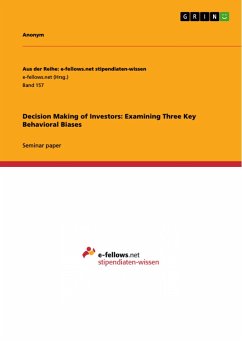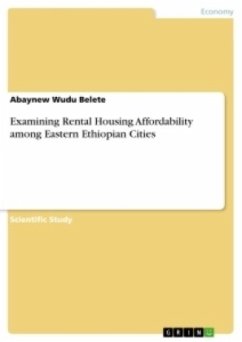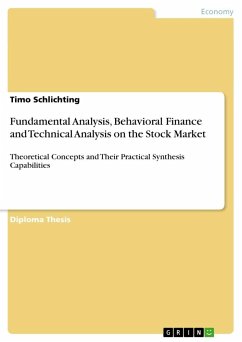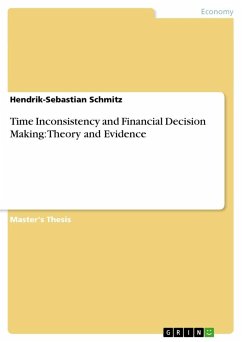Seminar paper from the year 2011 in the subject Economics - Finance, grade: 1,67, IE Business School, Madrid, language: English, abstract: In 2002, Daniel Kahneman and Vernon L. Smith received the Nobel Prize in economics for their work in decision-making and prospect theory. This was a significant event in the development of behavioral finance and highlighted its crucial role in advancing the understanding of dynamics and behavior in financial decisions for the financial community. Behavioral finance has continuously contributed with unorthodox and non-traditional approaches towards a better comprehension of markets and especially of its agents. The sentiment that market efficiency is an insufficient and somewhat unrealistic concept has been present for a long time. To improve the explanatory value of the concept, the structuring of observed deviations and subsequent analysis of its applications are necessary.The present empirical study contributes to this effort by examining some of the main hypothesized biases and behavioral patterns through practical application. For this objective, a small-scale sample has been subject to a survey on decision-making, in which central conceptual biases are tested empirically. The results may serve as additional insight into behavioral patterns and confirm or challenge widely used concepts of biases in financial decision-making.








